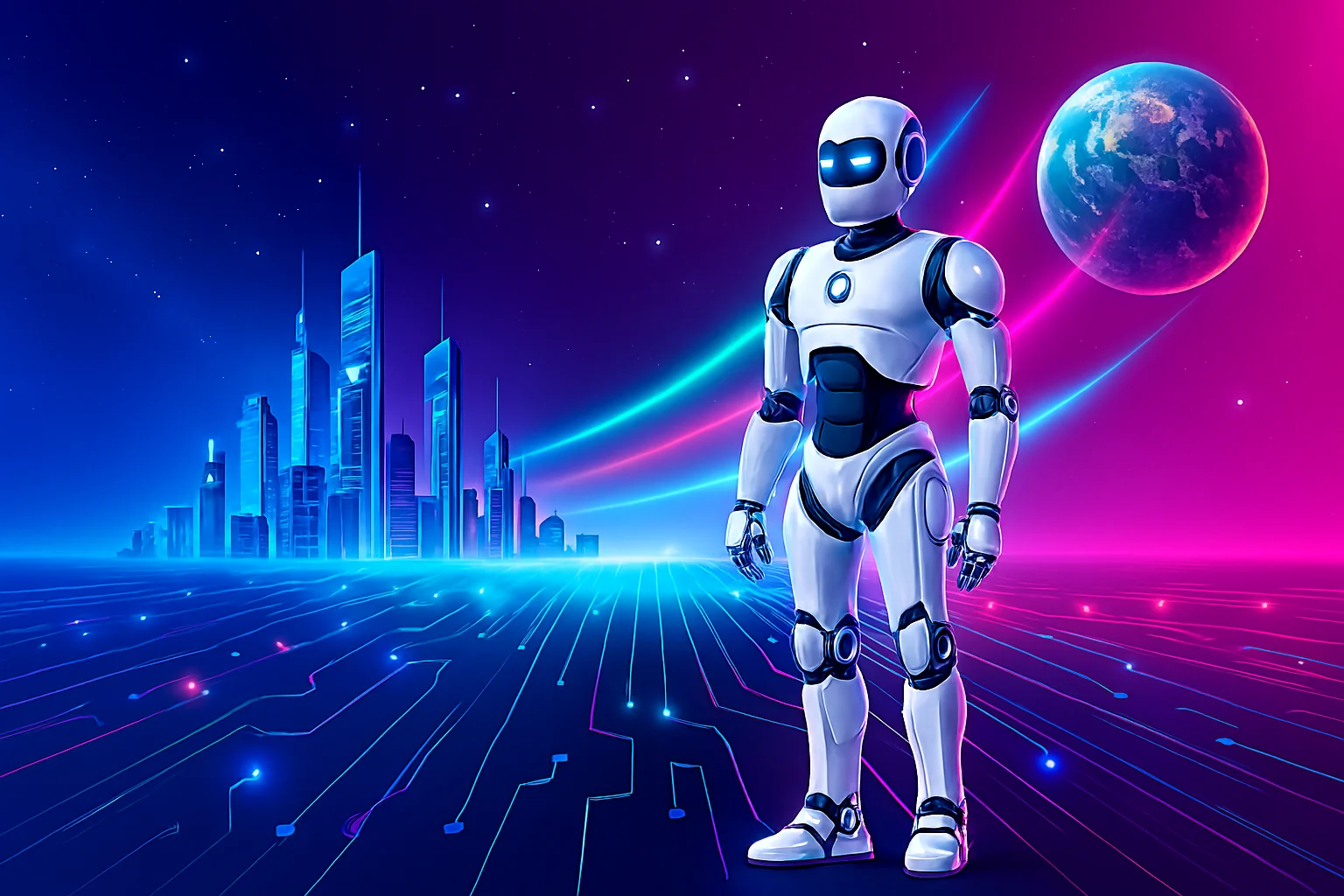
Understanding AI: Your Questions Answered
Estimated Reading Time: 2–3 Minutes
Key Takeaways
- What is AI: AI, or Artificial Intelligence, refers to systems that can perform tasks typically requiring human intelligence.
- AI Applications: AI is used in diverse fields like healthcare, finance, entertainment, and everyday tools like virtual assistants.
- AI’s Future: The ongoing development of AI promises further innovations and transformative impacts across industries.
What is AI and How Does it Work?
Artificial Intelligence (AI) is a broad field of computer science focused on creating intelligent agents, which are systems that can reason, learn, and act autonomously. These agents are designed to perceive their environment and take actions that maximize their chance of achieving their goals. The core of AI often involves complex algorithms and vast amounts of data to enable learning and decision-making.
At its heart, AI aims to mimic human cognitive functions. This includes capabilities like problem-solving, understanding natural language, recognizing patterns, and making predictions. Machine learning, a subset of AI, allows systems to learn from data without being explicitly programmed. Deep learning, a further specialization, uses neural networks with multiple layers to process complex data, leading to sophisticated AI capabilities we see today.
The development of AI is a continuous process, with researchers constantly pushing the boundaries of what’s possible. From understanding spoken commands to diagnosing diseases, AI’s potential applications are expanding at an unprecedented rate. This technology is rapidly becoming an integral part of our daily lives and the global economy.
Common AI Applications You Encounter Daily
You’re likely interacting with AI more often than you realize. Virtual assistants like Siri and Alexa use AI to understand your voice commands and provide information or perform tasks. Streaming services employ AI algorithms to recommend movies and shows based on your viewing history, personalizing your entertainment experience.
In the realm of e-commerce, AI powers product recommendations and personalized marketing campaigns, making online shopping more tailored. Even the spam filters in your email inbox rely on AI to identify and block unwanted messages. These everyday applications demonstrate AI’s pervasive and beneficial presence.
Beyond personal use, AI is revolutionizing industries. In healthcare, it aids in drug discovery and disease diagnosis. Financial institutions use AI for fraud detection and algorithmic trading. The automotive industry is heavily investing in AI for autonomous driving systems. These are just a few examples of AI’s transformative impact on a global scale.
The Future of Artificial Intelligence
The trajectory of AI development suggests an even more integrated future. We can anticipate AI playing a larger role in automating complex tasks, enhancing scientific research, and driving innovation across all sectors. The continuous advancements in AI promise to unlock new possibilities and solutions to some of the world’s most pressing challenges.
As AI technology matures, ethical considerations and responsible development become increasingly important. Ensuring AI systems are fair, transparent, and beneficial to humanity is a key focus for researchers and policymakers alike. The ongoing dialogue around AI’s societal impact will shape its future and its integration into our lives.
The global reach of AI means its influence will continue to grow. From optimizing supply chains to developing personalized learning experiences, AI is poised to redefine how we work, live, and interact with the world. Staying informed about AI developments is crucial for navigating this evolving technological landscape. For more insights into cutting-edge technology and news, you can visit newsog.in.
Conclusion
AI is a rapidly evolving technology with far-reaching applications that are already shaping our world. Understanding its fundamentals and applications is key to embracing its future potential. What are your thoughts on the most exciting AI advancements?
